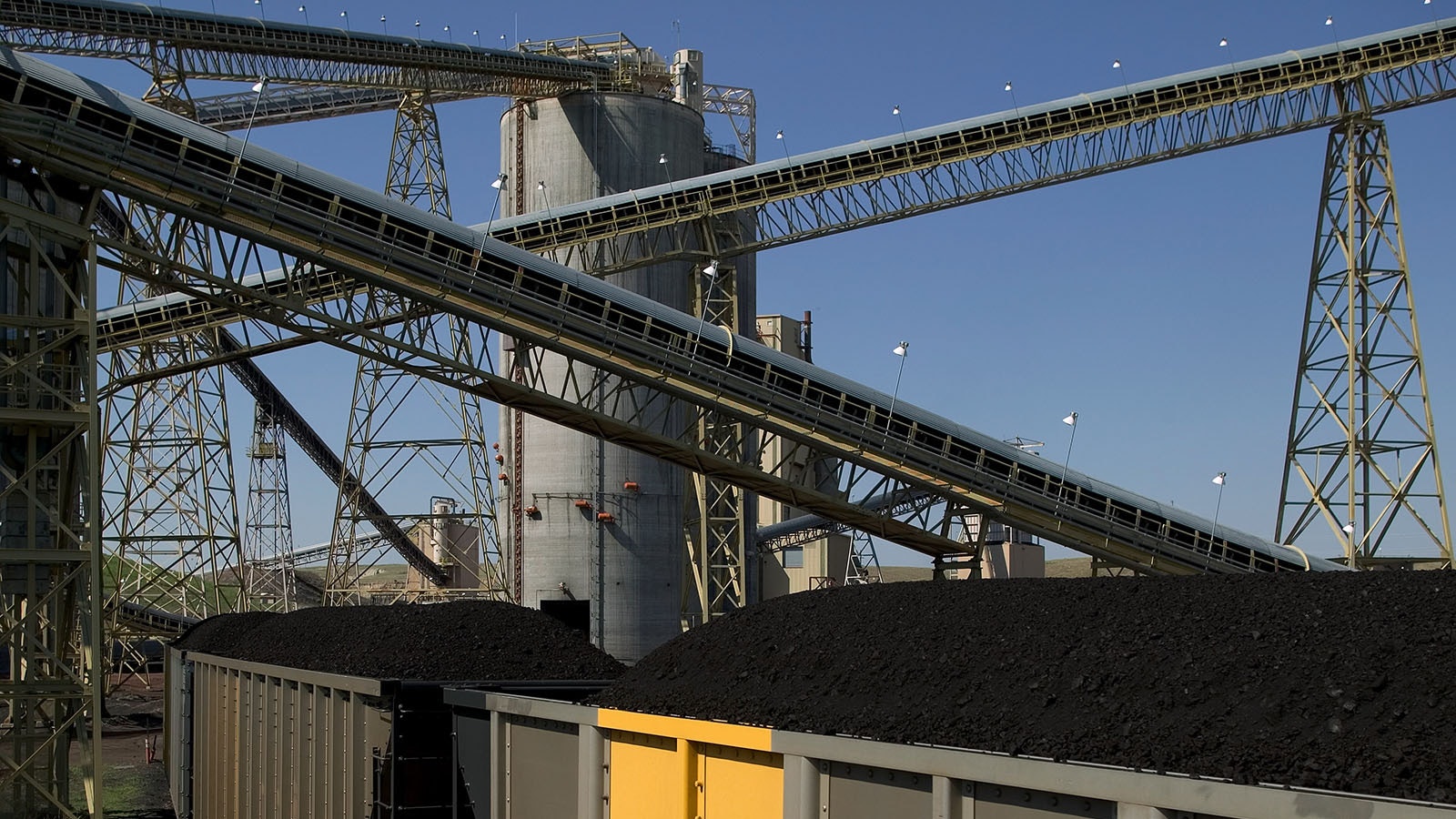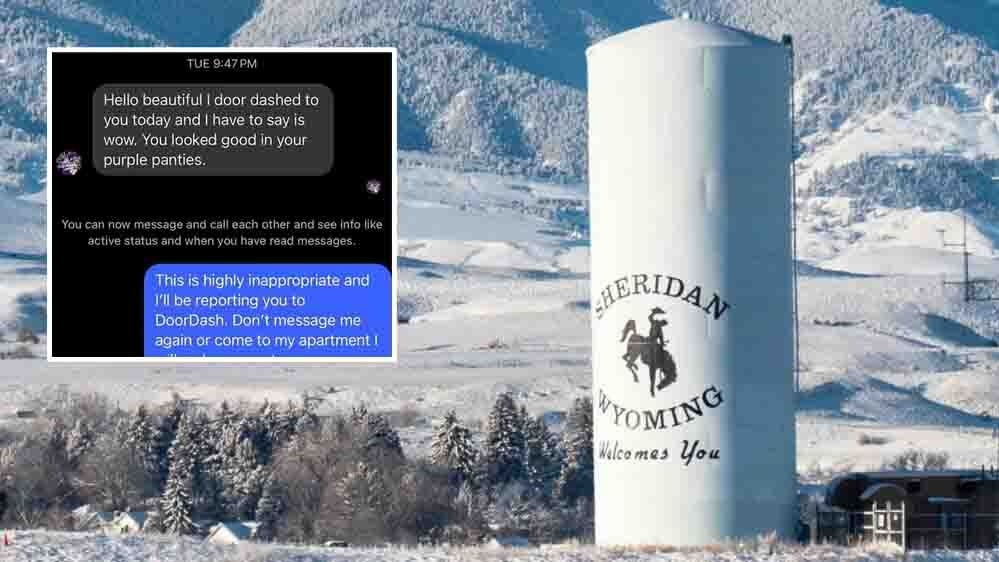Wyoming and 10 other states are suing three massive investors, accusing them of colluding to downsize coal companies in the name of achieving net-zero carbon emissions, and driving up energy prices for Americans and monopolizing the market in the process.
Blackrock Inc., State Street Corp. and Vanguard Group Inc. all acquired large percentages of major coal companies, then used their influence to bully the companies into cutting production, alleges the 11-state lawsuit.
Texas Attorney General Ken Paxton led the litigation, filed Wednesday in the U.S. District Court for the Eastern District of Texas. Alabama, Arkansas, Indiana, Iowa, Kansas, Missouri, Montana, Nebraska, West Virginia and Wyoming also signed the action.
“Each defendant — three of the largest institutional investors in the world — has individually acquired substantial stockholdings in every significant publicly held coal producer in the United States,” reads a Friday statement by Gov. Mark Gordon’s office. “Each thereby has acquired the power to influence the policies of these competing companies and significantly diminish competition in the coal markets.”
In 2021, Blackrock, State Street and Vanguard publicly announced their respective commitment to use their shares to pressure all portfolio companies in which they held assets to align with what Gordon’s statement calls “a climate activist agenda.”
Those goals included reducing carbon emissions from coal by over 50%.
Gordon commended Wyoming Attorney General Bridget Hill for her part in the lawsuit complaint.
“Under the guise of ESG policies, (the investors) have leveraged their holdings and voted their shares to artificially constrain the supply of coal and significantly diminish competition in the markets for coal, which resulted in increased energy prices for American consumers and extraordinary profits for the asset managers,” Gordon added. “Pushing back against anti-competitive ESG policies, especially when they unfairly exact profits from increased energy costs to Wyoming families and businesses, is one of the ways Wyoming continues to defend our coal industry and help power the country.”
The states are asking the court to declare that the companies violated an anti-monopoly federal law; to award damages to the states; to stop the investors from using their stock, proxy voting or other means to restrain coal output; and make the investors pay civil fines and penalties for violating a Texas business law, among other penalties.
Together They Own …
The three companies combined own 30.43% of Peabody Energy and 34.19% of Arch Resources, which are the largest publicly traded domestic coal producers in the United States, the lawsuit says.
They also own between 8.3% and 32.87% of other major coal companies, like Black Hills Corp.
In 1914, Congress enacted a law against acquiring stock where the effect is to substantially lessen competition.
The lawsuit accuses the three investors of doing just that, by acquiring large shares throughout the coal industry, as well as interconnected sectors like banking and other energy fields. The complaint says that after the investors pledged in 2021 to cut carbon emissions with their business actions, they would vote against coal company leaders who didn’t show they were shrinking coal output.
The result has been a chokehold on industry supply, the complaint says.
“Defendants have leveraged their holdings and voting of shares to facilitate an output reduction scheme, which has artificially constrained the supply of coal, significantly diminished competition in the markets for coal, increased energy prices for American consumers, and produced cartel-level profits for defendants,” the document says.
It’s not the only place in the complaint where the states call the investors a “cartel” — the word appears five times.
Falling
From 2019 through 2022, Peabody Energy’s production fell by 34.7 million tons, or 25.5%, says the complaint. Its revenues rose by $358.5 million during the same period, and its profits soared by $1.593 billion, or 853.9%.
Arch Resources’ production fell by 9.4 million tons over that timeframe, or 11.7%, while its revenues rose by $1.448 billion and its profits skyrocketed by $1.097 billion, or 469.2%, says the complaint.
The story continues with other energy companies, such as:
• NACCO Natural Resources’ production fell by 6.1 million tons, while its profits increased by $4.189 million, or 12%.
• CONSOL Energy’s production fell by 3.2 million tons, or 11.8%, while its revenues rose by $685.3 million and its profits increased by $423.1 million, or 214.7%.
• Alpha Metallurgical resources’ production fell by 6.4 million tons while its revenues rose by $1.843 billion and its profits increased by $1.224 billion, or 342.7%.
• Hallador Energy’s production fell by 1.7 million tons while its profits increased by $112.6 million, or 237%.
• Warrior Met Coal’s production fell by 2 million tons while its profits increased by $418 million, or 109%.
“Publicly held domestic coal producers were not responding to the laws of supply and demand,” says the complaint. “They were instead answering to defendants, who … possessed the power and the will to reduce the companies’ production of coal and made public commitments to vote management out of office if they failed to reduce coal production.”
Thick, Clean, Cheap Coal
The complaint dwells for several pages on the South Powder River Basin of northeast Wyoming, where the coal beds are thick and close to the surface. The region's low-sulfur coal is environmentally friendlier than many other kinds and tends to be less expensive because of how accessible it is.
Some companies will build coal-burning plants specifically for South Powder River Basin (SPRB) coal, the document says.
Because the plants are so costly and energy producers are required to furnish consumers with consistent power, this situation is ripe for a “hypothetical monopolist,” says the complaint.
A company isn’t likely to start over from scratch and build a new plant when the cost of SPRB coal soars: it will just endure and keep buying coal, the document says.
The document notes that renewable energy sources like solar and wind can’t furnish the constant power supply that power companies are obligated to provide, and coal-fired plants are more efficient when they run continuously, and may be required to keep a stable burn to reduce nitrogen dioxide.
Clair McFarland can be reached at clair@cowboystatedaily.com.





